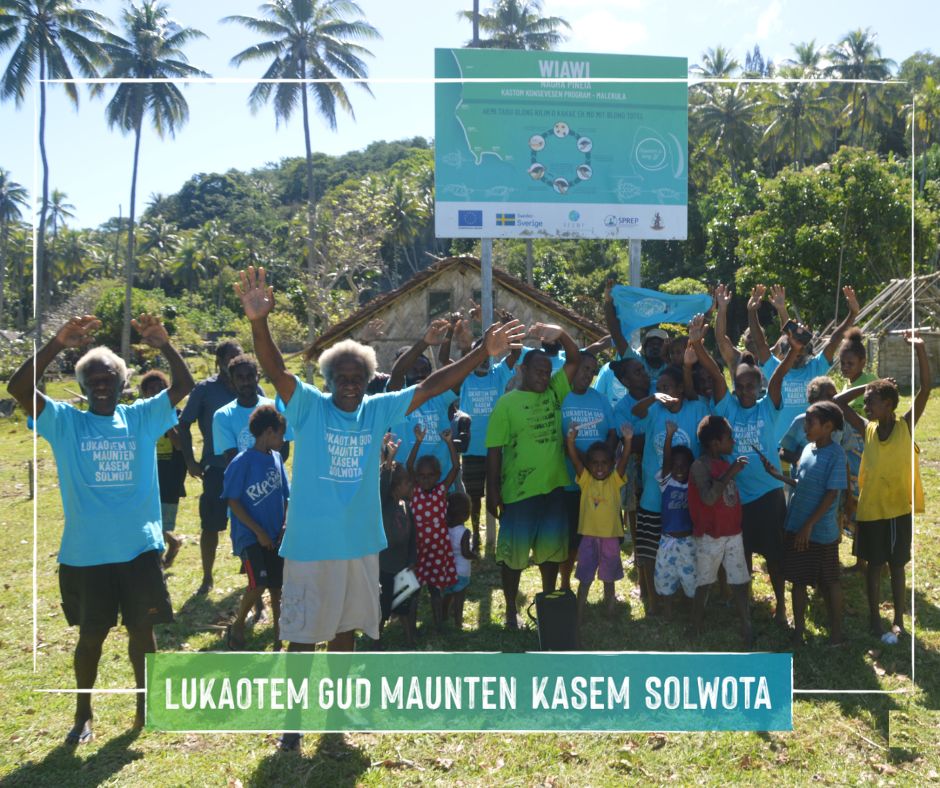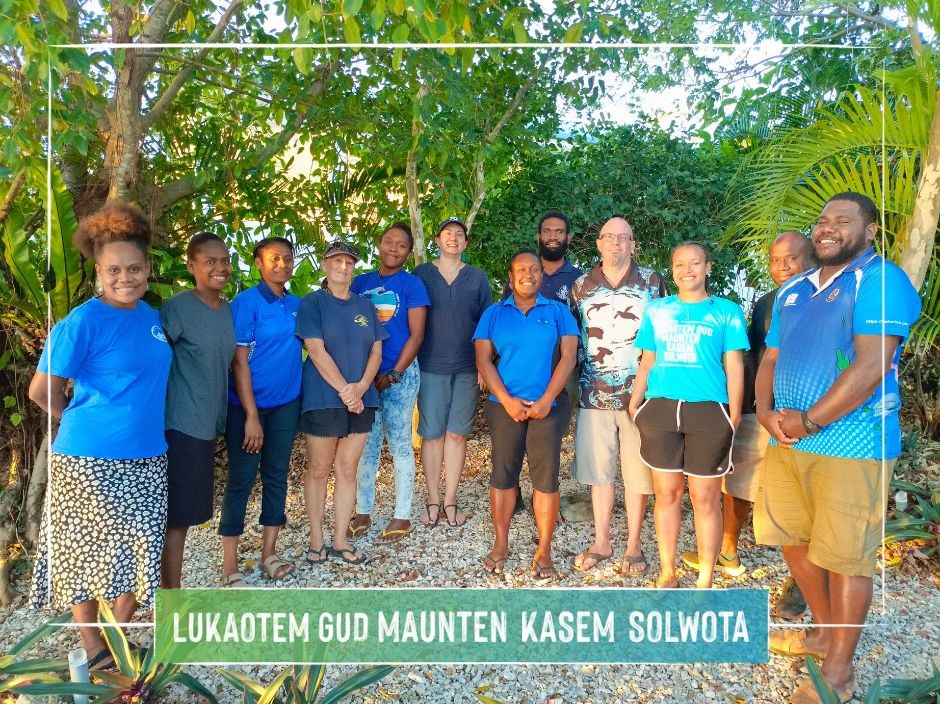
Sustainable use of coastal and marine biodiversity through improved management of ‘ridge to reef’ ecosystems and fisheries by-catch is the focus of the By-catch and Integrated Ecosystem Management (BIEM) Initiative project being implemented in Vanuatu in coastal communities in Malekula, Pentecost and Tongoa.
The multi-partner Steering Committee for the BIEM Initiative met on 18 July 2024 in Port Vila Vanuatu to review the progress of the 18 Vanuatu BIEM project activities currently under way in the country.
The BIEM Initiative is a partnership between Vanuatu government agencies, local communities, non-government organisations (NGOs) and the Secretariat of the Pacific Regional Environment Programme (SPREP) under the Pacific-European Union Marine Partnership (PEUMP) Programme funded by the European Union and the Government of Sweden.
Current BIEM Initiative activities in Vanuatu include marine biodiversity assessments, ecosystem and socio-economic resilience mapping, strengthening inshore community-based fisheries enforcement capacity, and the development of community turtle nesting management plans and launch of signage.
The BIEM Initiative Steering Committee comprises Vanuatu government agencies, non-governmental organisations and SPREP. These include the Department of Climate Change, Department of Environment Protection and Conservation (DEPC), Department of Forestry, Vanuatu Cultural Centre, Vanuatu Fisheries Department (VFD), and Vanuatu Ocean Affairs Office.
“Through the BIEM Initiative, critical research and management planning is being carried out to inform conservation initiatives at project sites in west Malekula, north Pentecost and Tongoa,” said Mr Dean Wotlolan, acting Chair of the BIEM Initiative Steering Committee on behalf of the DEPC.
This will enable our communities and government agencies to work together more effectively, inform decision-making and improve management of coastal resources, biodiversity protection and support sustainable livelihoods.”
The Vanuatu Fisheries Department (VFD) provided updates on the completion the first phase of the marine biodiversity assessments conducted in May along the coast of South-West Bay, Malekula. This research activity is investigating marine biodiversity and will outline practical options to manage threats and protect biodiversity and high value food-security species with communities. Further marine biodiversity assessments are planned for northwest Malekula and north Pentecost in August.
The BIEM Initiative supported an underwater photography workshop conducted by Critter Spotter for VFD staff in June. The workshop aimed to enhance the scientific capacity, visual communication and quality of marine research activities.
“It is a very important skill to have in the field to document, research and identify species to help to build awareness in our local communities about our marine ecosystems in Vanuatu,” said Ms Falma Aiviji, VFD’s Invertebrate Biologist.
The VFD plans to conduct an inshore fisheries workshop within the next three months for Tenmaru, Wiawi and South-West Bay communities to increase the number of community monitors trained to collect data on harvested marine species, including by-catch, and endangered protected marine species.

Malekula community consultations were also conducted in Bamboo Bay and Wiawi in June by the BIEM Initiative and Wan Smolbag to review draft turtle nesting community management plans and launch turtle conservation signage.
Both communities have led the development of the draft management plans to support conservation activities by community turtle monitors and co-design of the community signage with vital information in Bislama and local languages about turtle nesting cycles.
“Turtle conservation, awareness and capacity building is very important in both Bamboo Bay and Wiawi communities because they are hot spots for five endangered and vulnerable turtle species who nest and lay their eggs there,” said Mr Kalo Pakoa, BIEM Project Manager in Vanuatu.
“Working with the community is the key to making sure these turtle species do not become extinct for these communities and globally. Thank you to both communities for their leadership and commitment to monitor and conserve our marine turtles and their habitats,” he said.
The BIEM Steering Committee also noted plans for the Griffith University to return BIEM project sites to complete socio-economic resilient analysis mapping community engagement, as well as progress on finalising national plans of action for seabirds, sharks and turtles, and wedge-tailed shearwater management planning.

Deployment of fish aggregating devices (FADs) near project communities to reduce pressure on coral reef and lagoon fisheries and provide alternative livelihood options was also considered at the meeting.
International and local implementing consultants including Griffith University, Savvy Vanuatu, Tierra Mar and the Vanuatu Environment Science Society (VESS) also contributed to the July steering committee meeting.
“This was a very important meeting as we reviewed the implementation of BIEM project activities with our Vanuatu partners to address challenges and achievements, capacity building, communication initiatives and overall progress,” said Mr Ken Kassem, the BIEM Initiative Project Manager.
“There has been great progress on projects sites in Malekula and Pentecost. We are now finalising reports that will be eventually translated into Bislama and we hope, will serve as useful management resources for our partner communities.”
The BIEM Initiative, under the PEUMP Programme is working to ensure project activities and outcomes contribute to national objectives and meeting the needs of coastal communities around the Pacific.
The PEUMP Programme addresses some of the most serious challenges faced by the region. Among these are the increasing depletion of coastal fisheries resources; the threats to marine biodiversity, including negative impacts of climate change and natural disasters; the uneven contribution of oceanic fisheries to national economic development; the need for improved education and training in the fisheries sector; and the need to mainstream a rights-based approach and to promote greater recognition of gender issues within the sector.
his seven-year programme is funded by the European Union (EUR 35 million) and the government of Sweden (EUR 10 million). The programme provides direct assistance to regional organisations to support regional and national level activities in the Pacific.